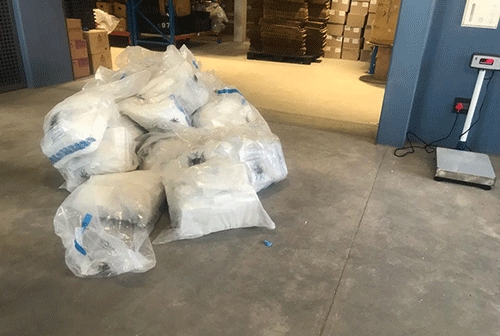The Namibian Police destroyed cocaine worth an estimated N$206 million yesterday. The contraband was part of a consignment confiscated in June 2018 in Walvis Bay, and its disposal followed the finalisation of the court case.
Nelius Becker, head of the Forensic Science Institute, emphasised the importance of destroying confiscated drugs on time to prevent their misuse and disappearance. He also highlighted the institution’s role in drug analysis and disposal to combat drug abuse.
He expressed concern about police officers’ involvement in drug-related activities, stressing the compromise it creates within law-enforcement, and its impact on arrests and prosecutions.
“We must stand together and fight. This is something that reaches everyone, and it is worrisome when it reaches our families,” he noted.
Becker said it appears that some South African harbours are on alert so that drugs do not pass there.
Now, they have moved to other venues like the Walvis Bay harbour to get the drugs through the country. It is important that the police remain vigilant and act against the people importing drugs.
On another score, the police struggle to import drug-testing material into the country.
“Since October, we have not been able to do analysis on cocaine,” he lamented.
The drugs which were destroyed belong to Grant Noble and Dinath Azhar, the two Walvis Bay residents convicted of smuggling a record amount of cocaine into Namibia.
Noble and Azhar were arrested after customs and police officials discovered 412kg of cocaine, with a Namibian street-market value of about N$206 million, in a container at the Walvis Bay harbour on 15 June 2018.
That was the single-largest consignment of cocaine to have been confiscated in Namibia.
The cocaine was found after customs officials had received a tip-off about drugs being shipped to Walvis Bay in a container.
The container had been shipped from Brazil via Cape Town to Walvis Bay, and was imported by a close corporation, Zeeki Trading CC, of which Noble was the sole member.



